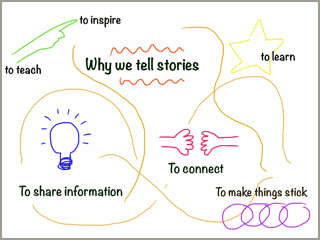
In the context of leadership, stories help us move forward together. (Courtesy of bgblogging on Flickr. License CC BY-NC-SA.)
Instructor(s)
Prof. Leigh Hafrey
MIT Course Number
15.269
As Taught In
Fall 2015
Level
Graduate
Course Description
Course Features
Educator Features
Course Description
This course explores how we use story to articulate ethical norms. The syllabus consists of short fiction, novels, plays, feature films and some non-fiction. Major topics include leadership and authority, professionalism, the nature of ethical standards, social enterprise, and questions of gender, cultural and individual identity, and work / life balance. Materials vary from year to year, but past readings have included work by Robert Bolt, Michael Frayn, Timothy Mo, Wole Soyinka, H. D. Thoreau, and others; films have included Crouching Tiger, Hidden Dragon, Hotel Rwanda, The Descendants, Motorcycle Diaries, Three Kings, and others. Draws on various professions and national cultures, and is run as a series of moderated discussions, with students centrally engaged in the teaching process.
Other Versions
Other OCW Versions
OCW has published multiple versions of this subject. ![]()
Archived versions: ![]()


